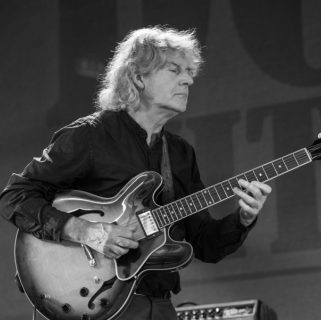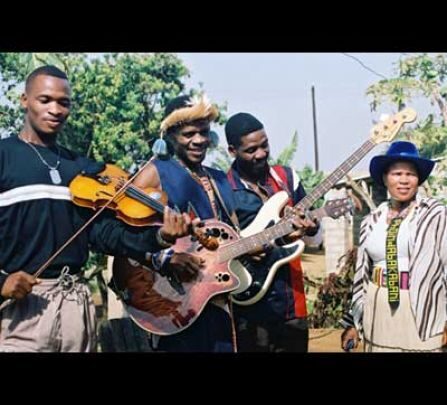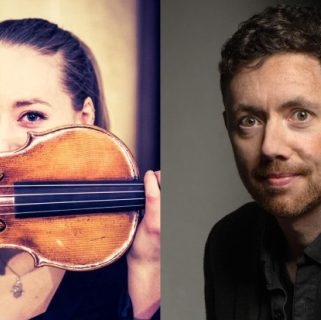
Shiyani Ngcobo
The players are:
- Shiyani Ngcobo - guitars, igogogo, vocals
- Aaron Meyiwa - electric bass, vocals
- Phathekile Lukhozi - percussion,vocals
- Mphendukelwa Mkhize - concertina,vocals
Sun 19th June 8pm
Whelan’s Wexford St, Dublin 2
Tickets €20 from
Improvised Music Company on 6703885
Claddagh Record, Temple Bar
WaV 1890-200078
Limited unreserved seating on first come, first served basis.
"From one of Africa’s less celebrated byways comes a Zulu guitarist and singer who has an intricate take on South Africa’s gritty maskanda style: music you’d hear in the migrant camps of the apartheid era Zulu rock n’ roll essentially." - The Observer
"Feelgood Zulu traditional music played with down-home verve by acoustic guitarist Shiyani Ngcobo, with help from bass guitar, violin and concertina. Ngcobo, now in his early 50s, sings and plays up a storm." - The Wire
A musician for more than thirty years, Shiyani Ngcobo is the guru of ‘maskanda’, the rhythmically addictive roots music that reverberates through the Zulu townships of South Africa
‘Maskanda’ was born of the Zulu experience of labour migrancy at the turn of the twentieth century. As a musical form, it is recognized by the instrumental flourish that sets the tone at the beginning of each song, by the ‘picking style’ of guitar playing, and by the rapidly spoken sections of Zulu praise poetry (izibongo). But ‘maskanda’ is more than a set of formal procedures; it is cherished as a practice that is firmly rooted in Zulu experience. From its very beginnings, ‘maskanda’ has been self-consciously stamped with tones and textures that are strongly reminiscent of older, pre-colonial musical practices. In the early decades of the twentieth century, migrant workers recalled the comfort of their rural homes by using the sounds and styles they associated with the life they had left behind, and singing of their new experiences in the city.
Shiyani Ngcobo was born in 1953 in Umzinto, on KwaZulu-Natal’s south
coast. The exodus of people into the migrant labour force had already
significantly eroded community life at Umzinto, and he remembers his
childhood as being a harsh struggle with poverty and the insecurity of
family and neighbours always ‘on the move’. Like the early ‘maskandi’,
Shiyani also finds solace in a sonic space, and it is through music,
rather than through any concrete lived experience, that he has forged a
sense of belonging. In his youth, Shiyani was exposed to a number of
different musical styles, but it was ‘maskanda’ that captured his
imagination, and he begged his older brother Khetuwise to show him how
to make his first igogogo (guitar made from a five-litre oil can) and
to teach him the song ‘Sevelina’. Little did Khetuwise realize just how
much ‘maskanda’ would direct the course of his brother’s life.
Perhaps it was maskanda’s textured shifting between different moments in time that resonated with Shiyani’s own unsettled experience, or maybe it was the liberating effect of speaking his mind with the impunity afforded a musician that appealed to the young Shiyani Ngcobo. Whatever the reason for the initial attraction, Shiyani has remained true to the aesthetic of early maskanda, while at the same time nurturing his own individual take on this musical practice. Maskanda is categorized into different styles, differentiated according to the rhythms of different dance patterns. Each set of dance patterns is associated with a particular regional community and named accordingly for example, the style associated with the people from the south coast is called isishameni. Ordinarily, maskanda musicians prefer to play exclusively in one style in order to demonstrate their loyalty to the community into which they were born. However, Shiyani Ngcobo’s music is a mixture of the rhythmic patterns associated with the different maskanda styles, and it is in this regard that his music differs quite significantly from the maskanda that has been punted commercially in South Africa.
Shiyani Ngcobo’s prolific repertoire gives voice to the dilemmas, trials and dreams of a generation of South Africans who carry the full weight of the apartheid legacy without falling prey to the stereotypes upon which apartheid traded.





